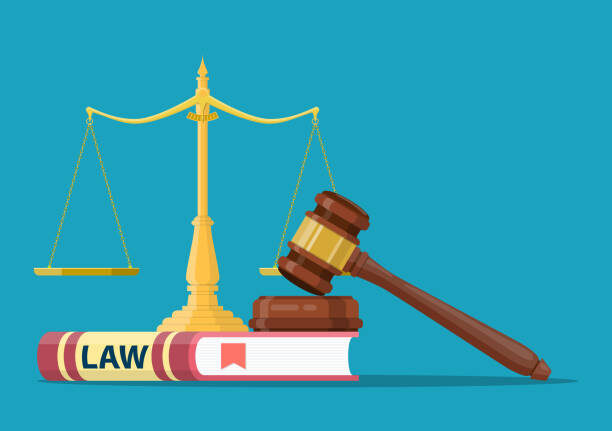

Adherence to good lawmaking principles is linked to the rule of law. To ensure the production of good legislation, provisions of the Constitution and the Rules of Procedure of the Parliament regulate individual issues related to the legislative process and set certain rules that must be followed when drafting and submitting a bill or an amendment for voting (see, inter alia, Articles 74, 75 of the Constitution, Articles 85, 87, 88 and 101 and in general Articles 84-123 and 160 of the Rules of Procedure of the Parliament). Furthermore, law 4622/2019 regulates, through Articles 57 to 64, issues of legislative procedure and good legislation.
Based on these general rules and Article 59 paragraph 5 of law 4622/2019, the Manual of Legislative Drafting Methodology, issued in 2020, analyses and specifies the rules that must be observed in the framework of the legislative drafting process. This handbook provides, inter alia, instructions and directions regarding: the consultation process (see, inter alia, p. 12-13, 67-68); amendments (see, inter alia, p. 4, 18, 63, 70-71, 77-78); the issue of repealed provisions (p. 16 and 35), and even the title of a bill (p. 18-19, 47).
On 24 March 2023, a bill was submitted to Parliament by the Ministry of Development and Investment entitled “Measures to support the victims and the relatives of the victims of the railway accident of 28 February 2023; pension provisions, provisions to strengthen the safety of the transport network, provisions to enhance development, provisions to modernise tourism legislation and other urgent provisions” and containing 132 articles.
According to the regulatory impact analysis that accompanied the bill when it was introduced to Parliament, parts A and B of the bill were submitted for public consultation from February 26, 2023 at 1:30 a.m., to March 1, 2023 at 10:00 a.m….” (see pages 1 and 18). Part C-Chapter A had apparently received one comment during the consultation process (see pp. 50 and 70) and Part E had incorporated parts of different bills that had already been through the public consultation process (see pp. 175 and 197). The regulatory impact analysis did not mention any details about the public consultation process for the other parts of the bill (see pp. 118 et seq., 152 et seq., 245 et seq., 298 et seq., 313 et seq. and 332 et seq.).
The bill incorporated articles from the two following bills from the Ministry of Infrastructure and Transport:
We note here that:
a) the period for which the above-mentioned Ministry of Transport and Infrastructure bills were put to public consultation was shorter than the minimum period of time permissible, as set by article 61 of Law No. 4622/2019 (i.e. one week).
b) according to what is stated in the regulatory impact analysis accompanying the Ministry of Development and Investment bill, and through comparison with the bill that was submitted to parliament with the articles of the Ministry of Infrastructure and Transport bills that were put to public consultation, a number of the articles appearing in the final bill (and therefore of the subsequently adopted Law No. 5039/2023) do not appear to have been submitted to the public consultation process. Articles that appear to have been subject to public consultation were only 56, namely 3-8, 11, 12, 14-23, 26, 29-32, 35, 36, 38-43, 73, 75-77, 80-94 and 96-101.
On 29 and 30 March 2023, three amendments were tabled in Parliament. Note that: a) these amendments contained a total of 21 articles; b) all three were tabled on the evening before the law was passed, i.e. long after the deadline had expired; and c) all three amendments contained provisions that were not related to any of the (many and different) issues regulated by the existing bill.
On March 29, the Standing Committee on Production and Trade drew up a report in which it recommended the acceptance, by majority vote, of the bill, in principle, article by article and in its entirety, and recommended that it be passed by Parliament as it stands. On March 30, 2023, the draft law was debated in the Plenary of the Parliament and the law was passed as 5039/2023, consisting of 152 articles.
In this case a number of principles and rules of good lawmaking do not seem to have been taken into account, such as the fact that a number of the provisions included in the legislation were not submitted to public consultation at all; the public consultation process for the original bill was shortened beyond what is legally foreseen, without any justification; amendments were submitted to the bill both after the deadline for amendments had expired as well as the fact that they contained provisions unrelated to the subject matter of the legislation.
In a state governed by the rule of law, the Government and the Parliament must create laws in accordance with both the Constitution and the Rules of Procedure of the Parliament, as well as the other rules that have been established to guarantee and promote good and transparent lawmaking practices.
In Greece, however, the violation of these rules of good lawmaking appears to be a long-standing and systematic problem, as highlighted by the legislative journey of Law 5039/2023.
Bank Account number: 1100 0232 0016 560
IBAN: GR56 0140 1100 1100 0232 0016 560
BIC: CRBAGRAA
![]()
In a time where the very foundations of democracy are gradually being eroded by the rise of extreme nationalism, alt-right movements, the spread of disinformation and corporate capture, the efforts of organisations such as Vouliwatch are more relevant than ever.
We rely on the generosity of each and every one of you to continue with our efforts for more transparency and accounta
By financially supporting Vouliwatch you support our litigation strategy, our campaigns for transparency and accountability in the political system, the development of new civic tech tools, our research projects and last but not least our impartial and accurate